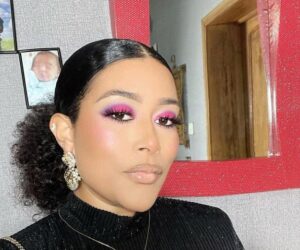
Adunni Ade’s Nollywood career hasn’t always been easy. Adunni discussed how colourism and bias influenced her journey and how her honesty and refusal to engage in industry politics resulted in her expulsion from English-language Nollywood in her interview with Chude Jideonwo, which was posted on the YouTube series “With Chude.”..CONTINUE FULL READING>>>>>
She clarified that being direct in the field frequently backfired. “I believe that Nigerians dislike being told the truth. Nigerians, in my opinion, enjoy being misled and mislead. I’m not sure if I’m permitted to say this.
You know, they enjoy it when others kiss their behind, and I don’t like it. In my book, yes is yes, and no is no. Black is black, white is white. In my opinion, white can never be grey. According to Adunni, she was excluded from projects because her directness was occasionally misinterpreted as being demanding. “Many people—I wasn’t being mean. I was simply being direct. All I was doing was what I thought was proper. That probably didn’t sit well with many individuals. And in some way, even if I might be mistaken, I feel like I was shunned by the English. I wouldn’t say that I’m quite sure, but I’ve lost employment.
She explained how coworkers would occasionally go out of their way to prevent her from taking advantage of possibilities. “I’ve had coworkers who are now well-known rip my name off and fabricate tales to producers, EPs, and other people explaining why they shouldn’t hire me. I’ve lost deals and sponsorships because people don’t like me, don’t know me, or don’t think I’m their type.
She clarified that, regardless of ability, favouritism and bigotry frequently dictated who was given opportunities. Therefore, they would rather put someone they get along with who can easily give them a cut or whatever the situation may be than give it to me, who deserves it the most. Because of something I never would have imagined happening to me, I thought my career was going up there at the moment. That was my nomination for best supporting actress in Africa for the film “It’s Her Day,” which I produced.
However, she was given a new opportunity in Yoruba cinema just when things appeared to be heading south. Then it simply went down the next thing. And I’m thinking, what the devil? What took place? How did this occur? Fortunately, however, God has a method. I went to the set after receiving a call for a feature from a Yoruba film producer, and other producers immediately began contacting me.CONTINUE FULL READING>>>>>


